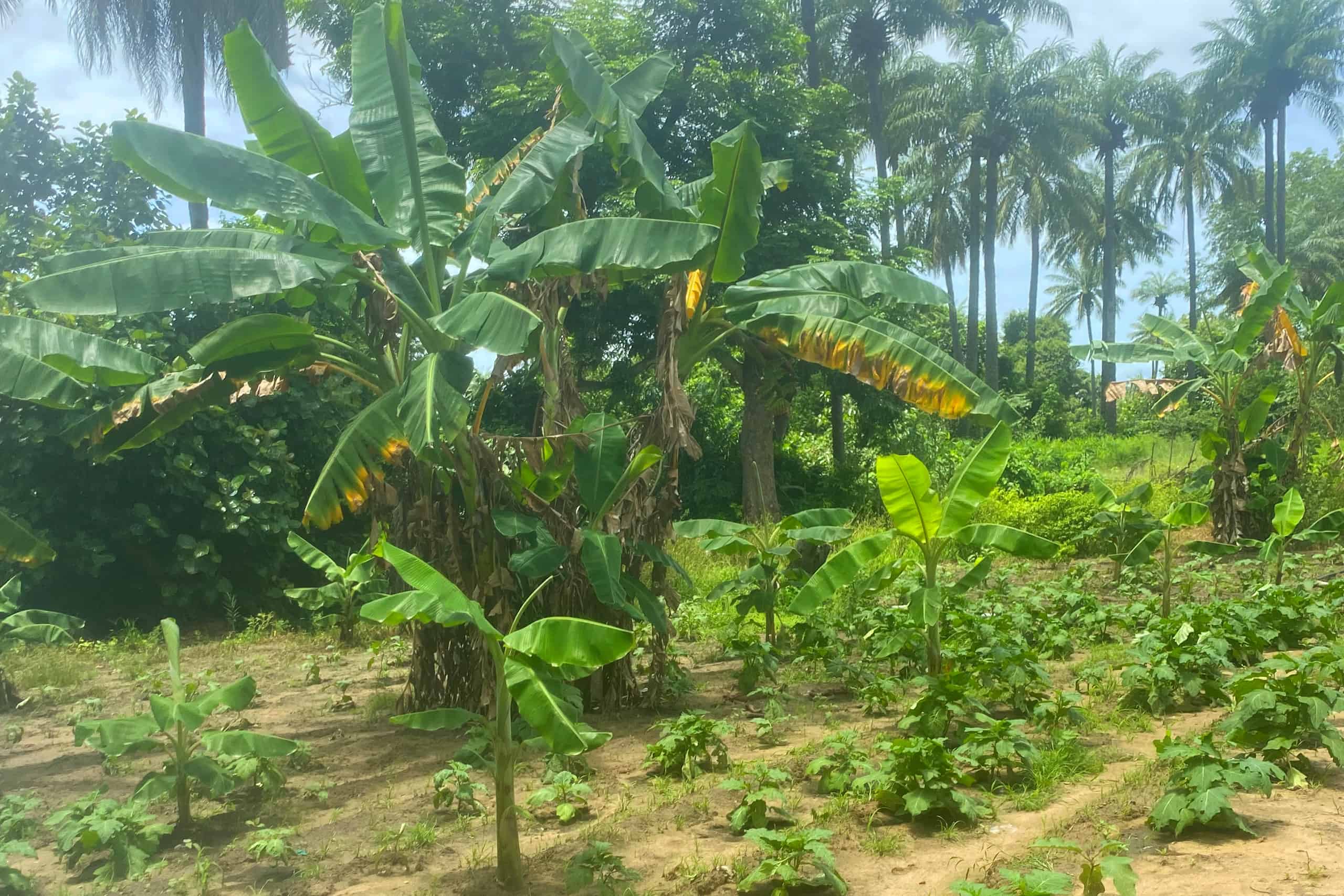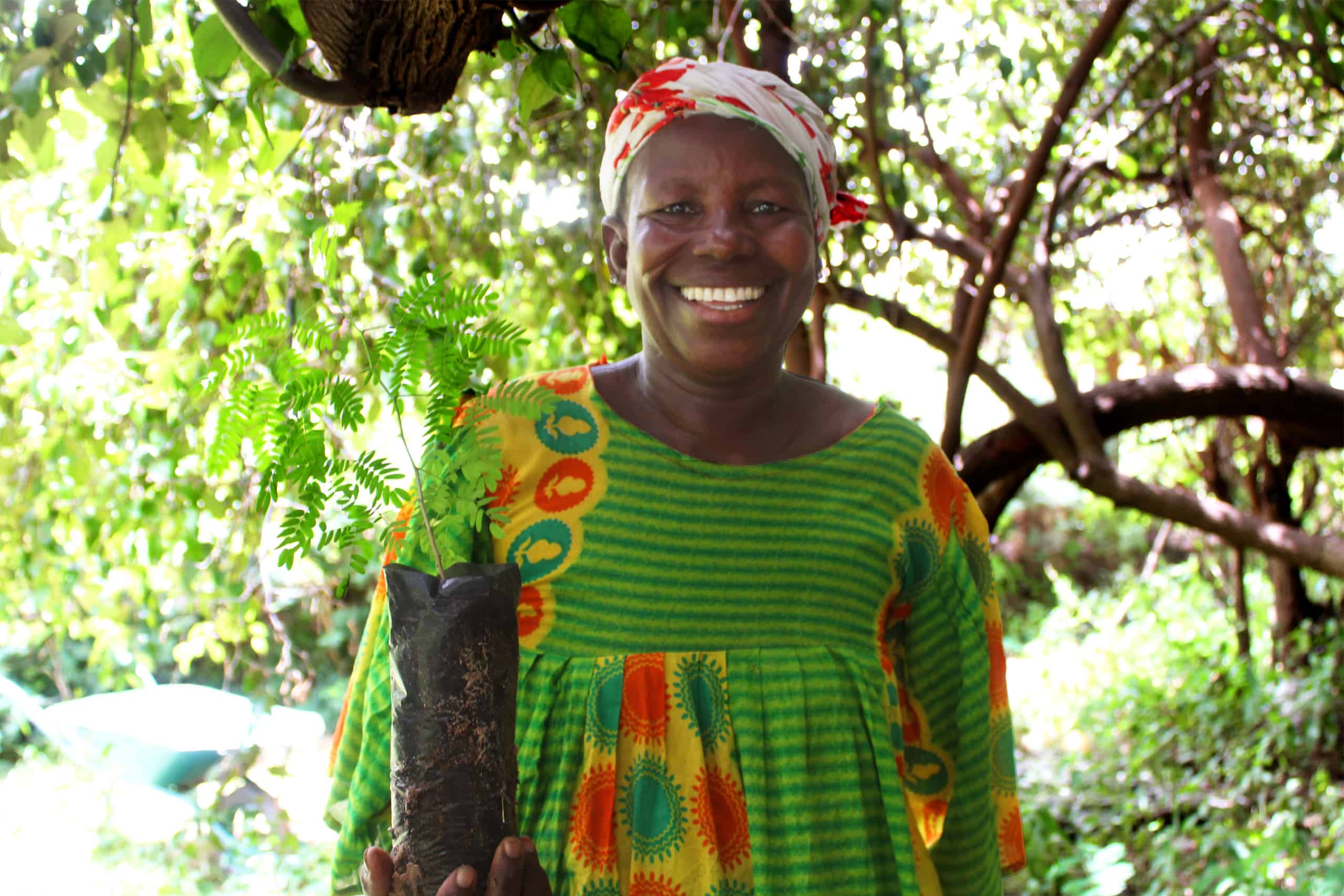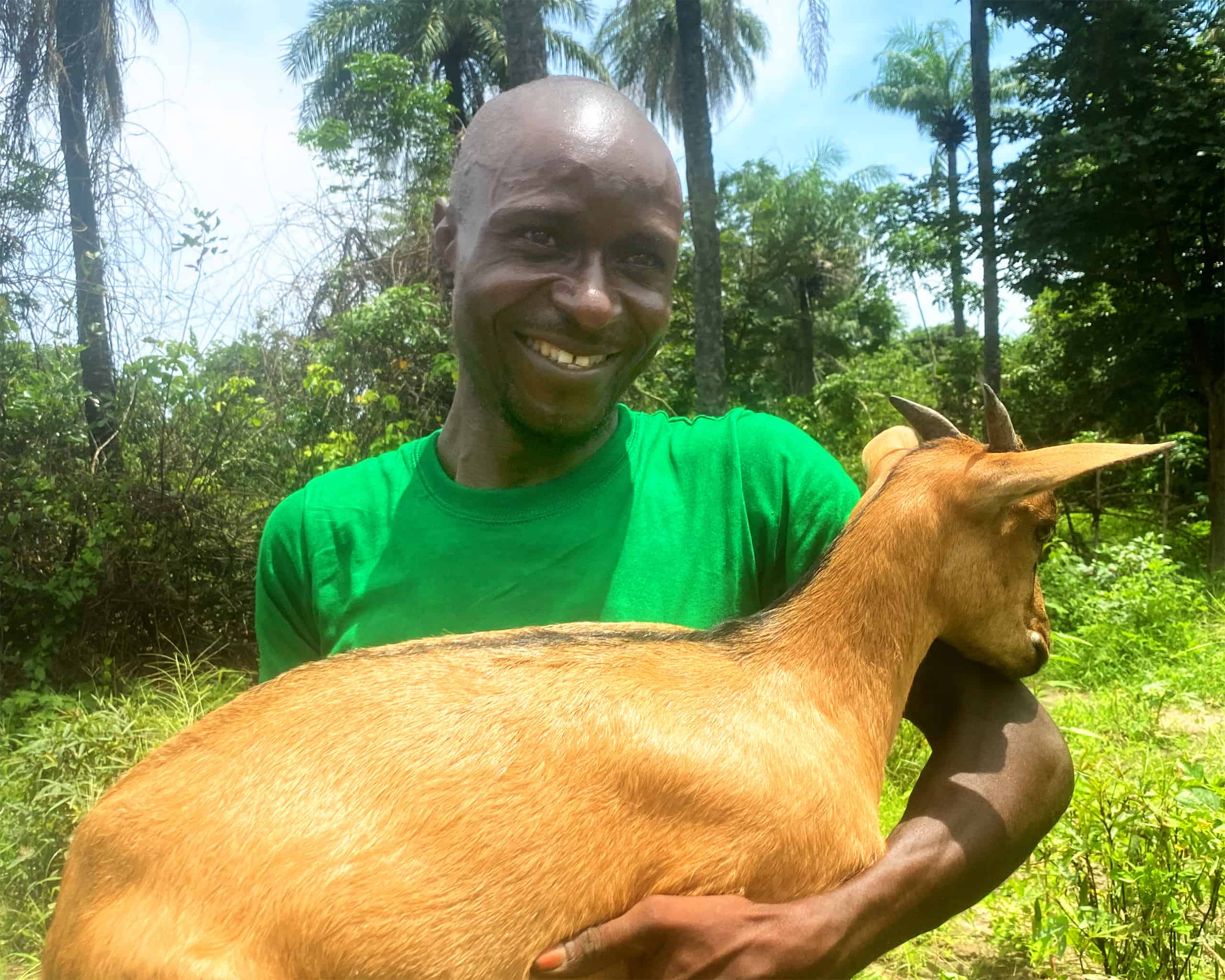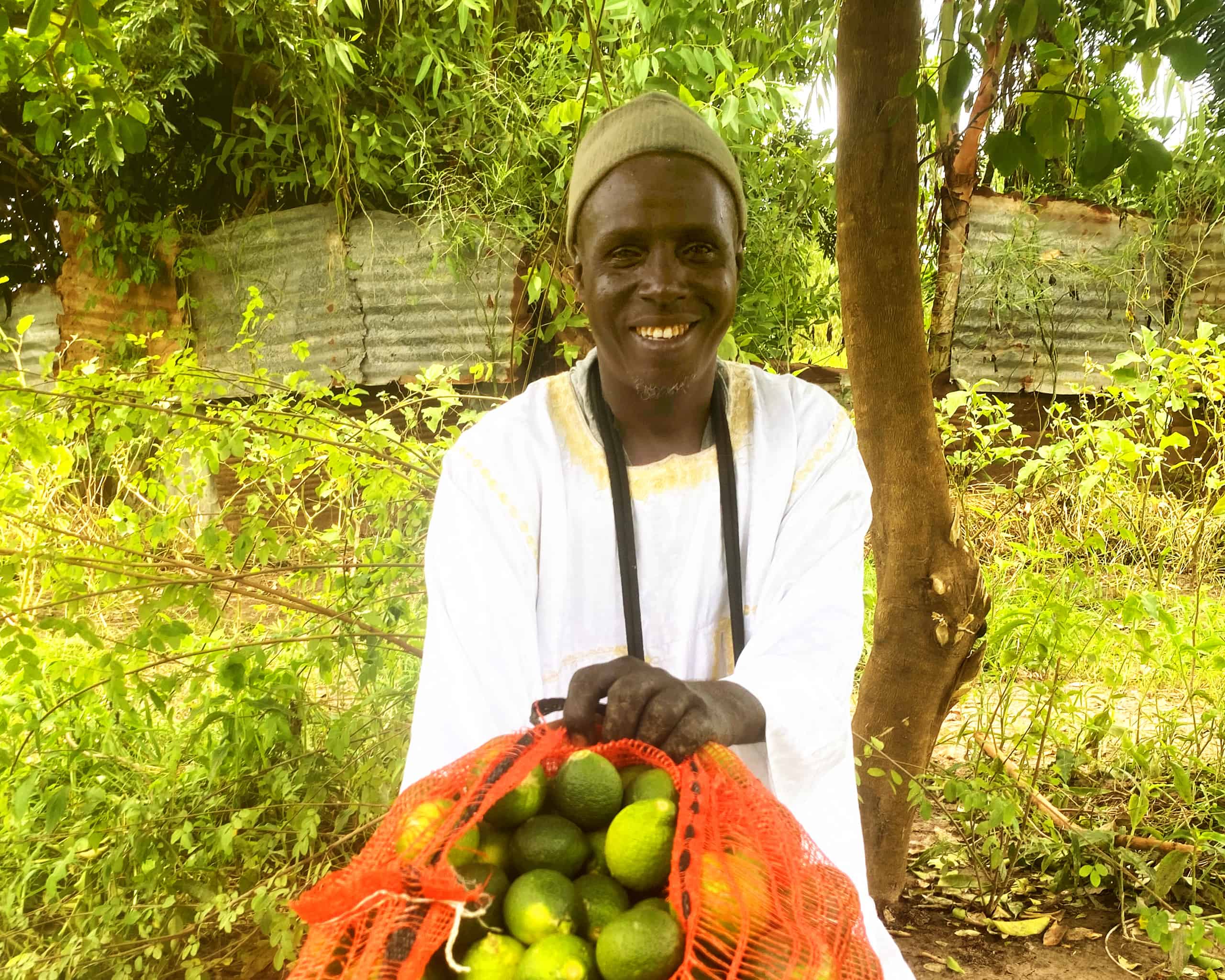Disputes between farmers and herders are plaguing families in West Africa. Across the region, many farmers raise livestock for a living. Known as pastoralists, these farmers rely on the wide-open spaces for grazing. Unfortunately, as cattle and goats roam the landscape looking for their next meal, they often end up grazing on valuable crops of neighboring farmers. Disputes over livestock grazing have turned increasingly more violent in recent years. Since 2010, more than 15,000 deaths related to farmer-herder violence have occurred, half of them since 2018.
“We asked Trees for the Future for help because in our fields, there was a lot of livestock rambling, which was causing us a huge loss,” says Nimna Ndiaye, President of Fepromas.
Trees for the Future (TREES) trains farmers across sub-Saharan Africa in a sustainable agroforestry method called the Forest Garden Approach. Forest Gardens are made up of thousands of trees and a diverse mix of species and crops, all working together to provide for the farmer while restoring and protecting the land.
The Federation of Maize Producers of Saloum (Fepromas) supports farmers in Senegal’s Fatick, Kaffrine, and Kaolack regions, building their access to financial institutions and various agricultural inputs. In 2021 the two organizations formed a partnership to bring the Forest Garden Approach to more than 3,000 farmers in the federation and solve multiple challenges farmers face, including farmer-herder disputes.

Forest Gardeners learn to integrate trees in their farms for a variety of benefits, from shading to keeping livestock or pests out of their gardens.
When farmers establish Forest Gardens, the first step is to plant a living fence (green wall) around the perimeter of their garden. The thousands of trees in a living fence provide nutrients to the soil and protect the crops from strong winds, flood waters, and grazing livestock.
“A living fence offers countless benefits,” says TREES Partnerships Coordinator Abdoulaye Diakhite In pastoralist regions, the barrier created by dense, thorny trees is not only protecting the crops, it’s reducing conflicts.”
“Thanks to the protection aspect of the living fences, conflicts between farmers and stockbreeders are avoided… There are no more conflicts related to the land,” Ndiaye says.
Apart from offering protection, the Forest Garden also provides agricultural diversity with vegetable gardening and the growing of fruit trees. Known as the Peanut Basin, many farmers in the region rely on one large peanut crop. But through their Forest Garden training, they are encouraged to grow more than a dozen species to eat and sell. Nutrition and income both increase within the first year of the four-year training program.

Since 2021, the partnership between TREES and Fepromas has provided more than 3,000 farmers with agroforestry training through the Forest Garden Approach.
“With this project, I was able to build my own house. My crops bring me at least 250,000 CFA francs ($378) every month,” explains Ass Niass, a member of Fepromas and beneficiary of the collaboration.
Plus, farmers are taking advantage of market opportunities in neighboring Gambia.
“Trees has brought about a real dynamism in the economy between the two countries,” Diakhite says. “It is important to know that once the harvest is completed, the farmers sell their vegetables in the close local markets in Senegal and the Gambia.”
“I sell my crops in more than 10 local markets between Senegal and The Gambia,” says Waly Diouf. “Thanks to my business income, I was able to buy livestock, manage the expenses of my house and start building a room for my children!”

With the income from his Forest Garden, farmer Waly Diouf has been able to purchase livestock for his growing farm.
In less than two years, TREES and Fepromas have turned the tide for farmers and pastoralists in the program, proving the old adage that when two forces are joined, their strength is doubled.
The farmers in the program will continue receiving training and resources for the remainder of the four-year program. When they graduate, they will have the knowledge and skills they need to succeed on their land long-term.
“We look forward to seeing farmers thrive and strong relationships blossom as each Forest Garden and living fence grows,” Diakhite says.
“Life is more comfortable when you offer your children a safe future, just for that TREES is doing us a great service!” says Aliou Diamada.
Help bring training and resources to more farmers like Aliou. Donate today.
